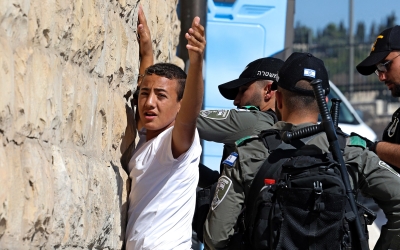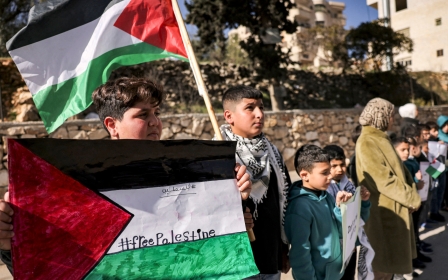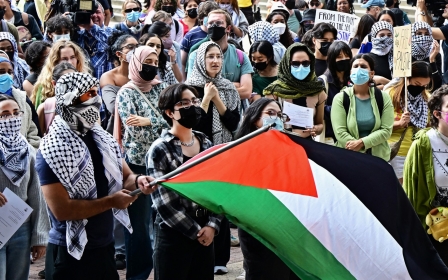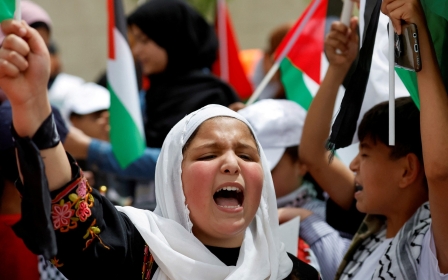Why is Israel deliberately targeting Palestinian students?
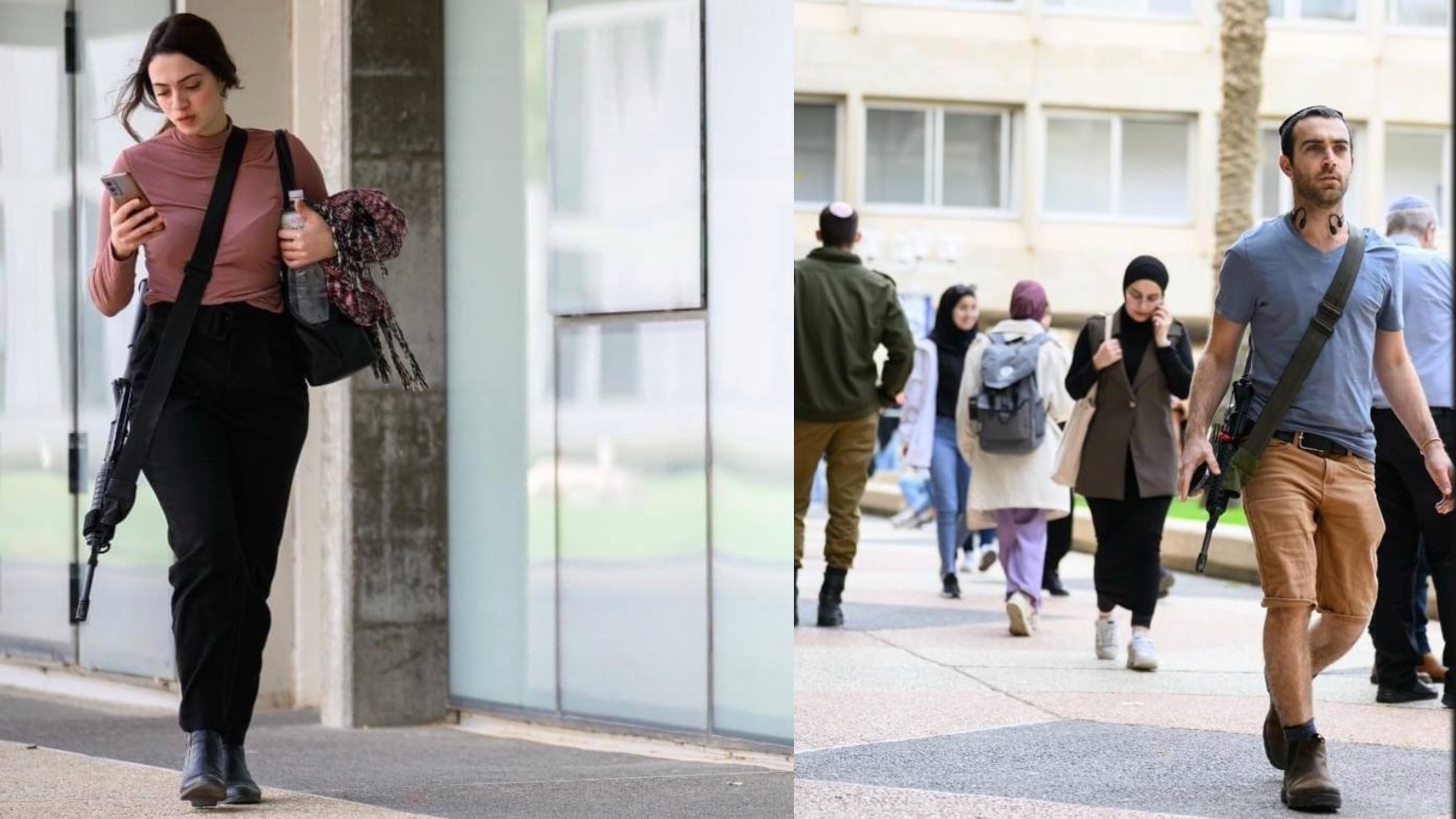
On 31 December, about 66,000 Palestinian students returned to Israeli universities or began their first term there, after the start of the academic year was postponed three times due to the ongoing war on Gaza.
What was already a difficult experience for Palestinian students to acclimate to their university setting has become a dangerous task amid an atmosphere of continuous incitement against all Arab and Palestinian citizens of Israel. Since 7 October, the government has made it clear that "every Palestinian citizen has a seat on the bus to Gaza".
According to the latest poll conducted by the Joint Coalition of Student Blocs, 76 percent of Arab students do not trust the university or college administration, and more than 87 percent felt their sense of security and safety was damaged, with almost unanimous agreement that the atmosphere is hostile towards Arab students.
This poll comes against the backdrop of the suspension of studies for dozens of Palestinian students from Israeli universities since the start of the war, and their transfer to disciplinary committees. In many cases, they were investigated by the police and indictments were presented against them.
Perhaps the most dramatic arrest occurred on 19 November when Israeli police arrested four female students studying at Nof HaGalil Technology College after they published pictures and content on social media related to the war.
New MEE newsletter: Jerusalem Dispatch
Sign up to get the latest insights and analysis on Israel-Palestine, alongside Turkey Unpacked and other MEE newsletters
The four girls, who hail from the Nazareth area, were arrested at dawn and their family homes were raided and searched by the Israeli police.
In their statement, the police claimed: "In addition to the increased readiness on the field, police forces were active last night decisively and relentlessly to uncover incitement and support for terrorism".
Policing students
This targeting can be added to a series of other incidents aimed at intimidating Palestinian students and silencing them within Israeli academia, which has increased since the Gaza war began.
Recent statements made by the Israeli prosecutor prove that the University of Haifa itself filed 20 complaints against its students to the police
In response to the arrests of the four women, the Joint Coalition of Student Blocs stated: "The students were arrested in a barbaric manner aimed at insulting them and continuing Israel's intimidation tactics against its Arab community. It is worth noting that all of these arrests were based on mere interaction with posts on social media, and not even the students' own written posts, which is considered a dangerous precedent worldwide."
The organisation added: "It is viewed with great seriousness that academic institutions are cooperating with the police to arrest their students, as the police indicated that some of the information they received was obtained from one of the highest academic institutions in Israel, which we consider to be a violation.
"This is dangerous and unprecedented behaviour by academic institutions that brag about their professionalism and academic production in front of the world. They are not ashamed to play the role of policeman and informant towards their students, to go along with the policy of silencing and persecuting our students."
Follow Middle East Eye's live coverage of the Israel-Palestine war
According to the latest detention report issued by Adalah, a legal NGO promoting Palestinian rights in Israel, the centre is monitoring 251 cases of arrests, investigations, and interrogations of students - including 121 cases due to social media posts and 60 cases due to demonstrations.
The report added that there is an increase in the targeting of students from academic institutions, including the University of Haifa and the Technion Institute. For example, statements made by the Israeli prosecutor in a hearing held for university students prove that the University of Haifa itself filed 20 complaints against its students to the police.
But why does Israel insist, even in times of war, on targeting Palestinian students within the Israeli academia?
A 'silent revolution'
There is nothing new about the political persecution of Palestinian citizens of Israel, in general, and not just of university students. However, Palestinian achievement in Israeli academic institutions can only be described as a miracle or a silent revolution.
In its early years, Israel decided to work systematically to ensure that Palestinians with Israeli citizenship could not enter its universities, or that those who did would only be allowed to follow a particular educational path.
The Israeli government worked to ensure that those who survived the 1948 Nakba and became citizens of its state could not form an educated elite that would demand, God forbid, national rights on their land.
Therefore, the focus was on not enabling them to choose majors from the faculties of social sciences and humanities, but in professions and industries for which adequate employment would be guaranteed.
For example, while Palestinian students would be encouraged to pursue medicine or nursing, which would contribute to the Israeli workforce, pursuing studies in media, sociology, or post-colonial theories would create a problem for them.
Israeli historian Adam Raz documented this policy outlined in 1958 as "Advice for Dealing with the Arab Minority” in Haaretz. According to that policy, the formation of an academic elite would encourage them to strive for "radical leadership positions".
Today, Palestinians inside Israel constitute almost 20 percent of the population. And despite the many barriers, such as language, cultural differences, and identity dilemmas in the public sphere, the percentage of Palestinian students in Israeli academic institutions constitutes around 19 percent of the total number of students in Israel.
Israel has been long concerned that the formation of an academic elite would encourage them to strive for 'radical leadership positions'
In 2021, for the first time, the number of Palestinian students exceeded 60,000, an increase of about 133 percent in the number of students since the beginning of the previous decade. These numbers and percentages are truly a miracle for a society where more than half of the children come from impoverished homes, per Israeli standards.
Indeed, what happened over the decades was a silent revolution and a victory in the battle for the right to education. It was the opposite of what Israel wanted and planned for the Palestinian community within its borders.
These Palestinian students are also the ones who will lead their society and uphold their identity. No matter how much Israel has invested in creating a new "Arab" identity, their efforts and policies are destined to fail.
In the face of its failure, Israel has desperately deployed tactics of intimidation and suppression. These policies will also fail as individuals cannot be separated from themselves and their realities.
Also, if Israel, far from police rule still wants to claim itself as a democratic state that guarantees freedom of expression, it must look at itself in the mirror and at its distorted image in front of the world - an image that will take years to restore, if that is even possible.
The views expressed in this article belong to the author and do not necessarily reflect the editorial policy of Middle East Eye.
This article is available in French on Middle East Eye French edition.
Middle East Eye delivers independent and unrivalled coverage and analysis of the Middle East, North Africa and beyond. To learn more about republishing this content and the associated fees, please fill out this form. More about MEE can be found here.



